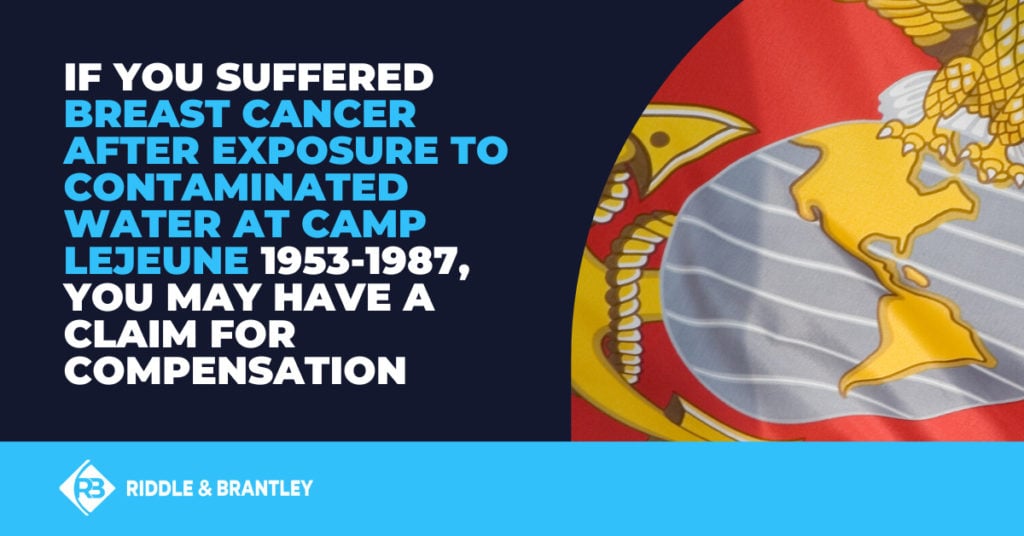Located in North Carolina, Camp Lejeune was a Marine Corps Base that was in operation for many years. During that time, the base was supplied with water from potentially contaminated wells. As a result, many veterans, family members, and civilian workers were exposed to toxic substances and may have developed cancer or other health problems.
In 2012, Congress passed the Camp Lejeune Justice Act, which allows for more people exposed to the contamination to file lawsuits against the United States government. If you are unsure whether you qualify for a lawsuit under this act, there are some key factors to consider. First, you must have been present at Camp LeJeune between 1953 and 1987. This is the time-period during which the water was contaminated. 2nd, you must have consumed or been otherwise exposed to the contaminated water on the base. And lastly, your health problems must be linked to your exposure to the toxic water at the camp.
Water contaminants at Camp Lejeune
The water contaminants at Camp Lejeune included several Volatile Organic Compounds (VOCs), such as Trichloroethylene (TCE), Benzene, Vinyl Chloride, Perchloroethylene (PCE), Methylene Chloride, and Toluene. Each of these chemicals can have serious effects on human health, and exposure to them can lead to cancer or other illnesses.
In tests conducted in 1982, it was found that the water at the camp contained high levels of these chemicals. As a result, many people who were present at the base during this time-period may have been exposed to these toxins and could be at risk for health problems. The Tarawa Terrace Treatment Plant’s water, in particular, exhibited very high levels of PCE and TCE. The water at this plant was used by many people on the base, including those living in the Tarawa Terrace housing area. The causes of this contamination have since been attributed to a dry-cleaning facility, improper waste disposal, and a leaking underground storage tank on the base.

The Camp Lejeune Justice Act
In 2012, Congress passed the Camp Lejeune Justice Act, which recognized that the United States government was responsible for the water contamination at Camp Lejeune. This act provides benefits to veterans and their families who were affected and allows for health care and disability compensation for those suffering from 15 diseases that have since been tied to the water contamination at the camp.
If you are able to successfully file a Camp Lejeune lawsuit and win, you may be eligible for financial compensation for your medical expenses, pain and suffering, and other damages. It is important to note that the amount of compensation you may receive will vary depending on the individual circumstances of your case.
Conclusion
The health effects of water contamination are potentially life-threatening and have been linked to multiple cancer illnesses. If you were present at the camp during the time-period in which the water was contaminated, it is important to get tested for these health conditions and to speak with a doctor about your risk. You should also speak with a lawyer to discuss your case and whether you may be eligible for a lawsuit under the Camp Lejeune Justice Act.

